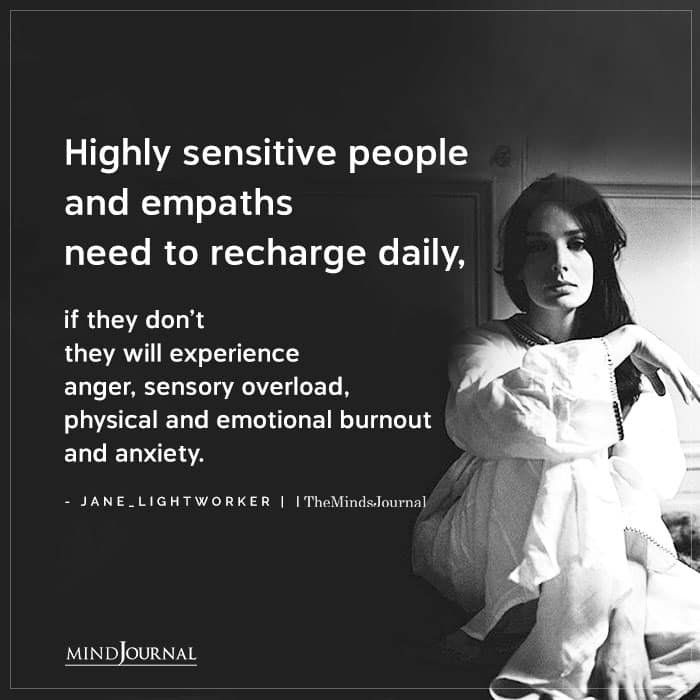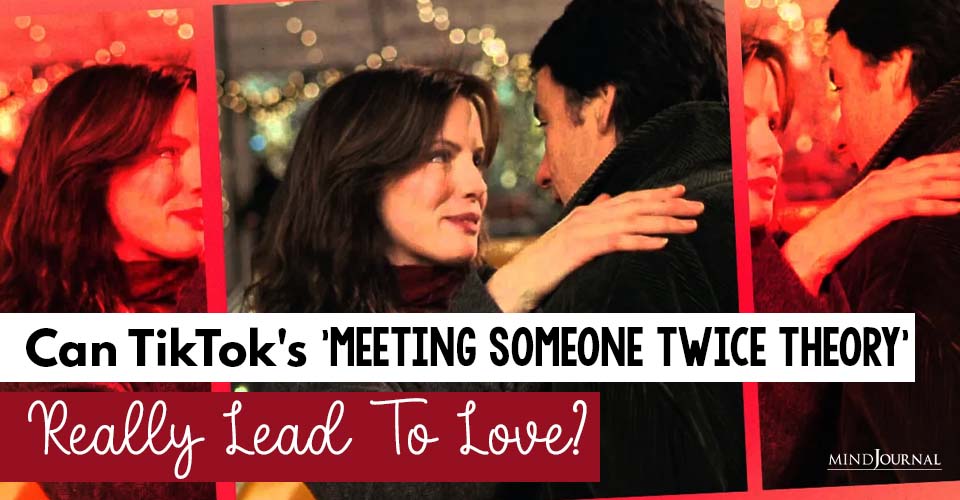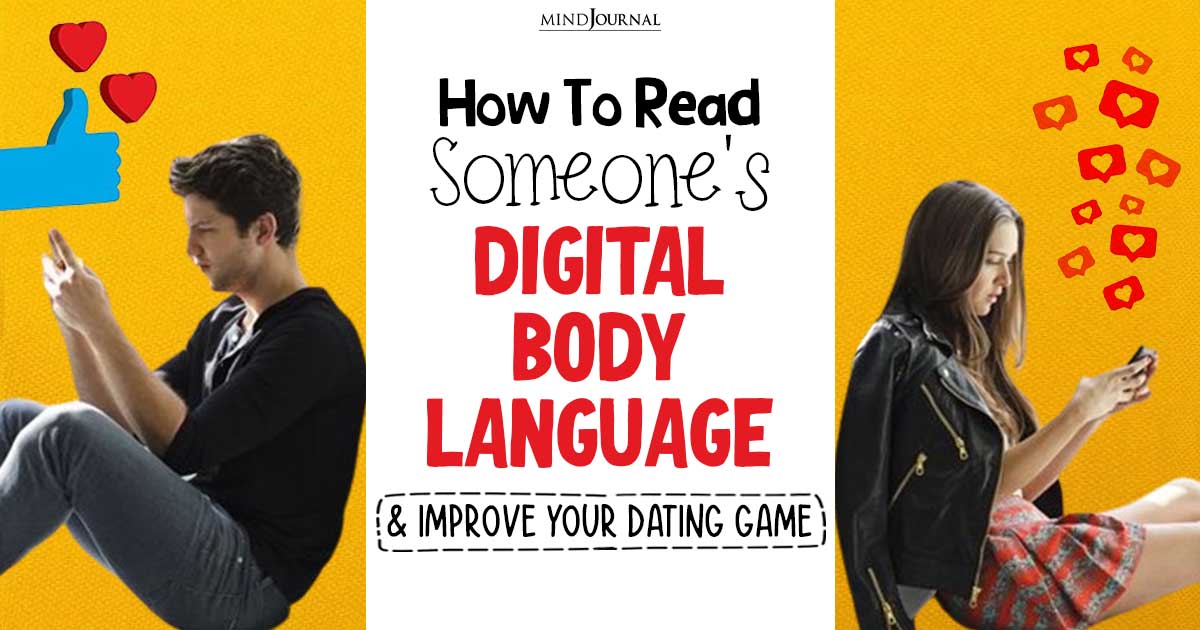Intense & sensitive people see and feel the world differently. Dating an intense person can be emotionally overwhelming because of their heightened sensitivity. Here are some of the obstacles intense people face in intimate relationships or the lack of them.
Dating an intense person and dating as an intense person comes with unique challenges. These relationship struggles may include emotional difficulties, misunderstandings, boredom, and the frustrations that come with not being able to find someone who matches intellectually, emotionally, and spiritually.
One of the biggest and most painful challenges highly sensitive, intense and gifted adults can face is how difficult it is for them to find partners that understand their overexcitability. In this article, you will find eight common highly sensitive, intense, and gifted adults people find in relationships and four pieces of advice on what you can do to deal with them.
Highly Sensitive Persons, Intense and Gifted People Can Be Out Of Sync
A lot of the sensitive and intense people’s problems stem from the fact that they are out of sync with the rest of the world. From the get-go, these gifted adults see the world and feel the world differently. But being out-of-sync comes with its challenges.
Just as in their childhood as gifted children, sensitive and gifted adults feel alone in the world. As you are wired differently, true peers have always been hard to come by. You have a lifelong yearning for a soulmate.
A romantic partner may seem like an ‘obvious’ answer to the gaping hole in your soul, but the reality might leave you disappointed. Even if you have met someone or made a friend with whom you have a reciprocal connection, you find yourself outgrowing them. The best scenario would be to have a committed partner who can grow with you, but not all of us are fortunate enough to have found such a person.
As a gifted adult, you are not the only one who struggles with romantic relationships in our fast-moving world. Being intense and sensitive, however, means you are more likely to face the following challenges.
“Remember to look up at the stars and not down at your feet. Try to make sense of what you see and wonder about what makes the universe exist. Be curious. And however difficult life may seem, there is always something you can do and succeed at. It matters that you don’t just give up.”
― Stephen Hawking

8 Challenges Highly Sensitive, Intense and Gifted Adults Face in Relationships
Here are some of the sensitive gifted adult’s problems found in their intimate relationships or the lack of them:
1. Boredom, Impatience, Loneliness
Intense and gifted people often feel bored and impatient in a relationship. If your partner does not meet your intellectual rigor and emotional depth, you end up feeling under-stimulated and alone, even when you are with someone. You are not only sensitive but also enthusiastic, excitable, and multi-passionate. You bring a lot of energy and ideas into a relationship, but you may not feel your input is reciprocated.
Read: 5 Traits Of An Emotionally Intense Person: Are You One?
Dating as an intense person is difficult as it is challenging for them to find someone that they are romantically or sexually attracted to, who can also connect with them emotionally and intellectually. They are eager in their search for adventure and exploration— physically, psychologically, intellectually, visually, and sensually.
However, their partner may not be able to join them in their ventures. The gifted adults’ partners or potential partners may simply be content with the ‘known’ world and have little curiosity. The partners are unable to keep up with the gifted adults’ speed of processing and do not share their hunger for knowledge.
Thus, the gifted adults are often frustrated with the partners’ lack of curiosity, and the partners feel overwhelmed by the gifted’s enthusiasm. Many gifted adults also feel sick and tired of always having to be the ‘leader’ in the relationship.
Some intense people may try to fill the gap through friendships and acquaintances but remain envious of other couples who seem to be ‘soulmates’. If they find the interaction with their partner increasingly stilted, their frustration may come out as sarcasm, irritation, back-handed criticism, or verbal attacks that they later regret.
It is in the gifted adults’ nature to want to experiment, to learn, and to improve things for the better; painfully, they may find themselves outgrowing one partner after another.
2. You Carry Past Pain Into The Present
Being gifted and intense might have led to a whole life experience of being misunderstood, judged, called too idealistic, too sensitive, too serious, too much, too impatient… You might have been bullied in school and have internalized the feeling that the world is not safe.
Perhaps you were trapped in some unhealthy family dynamics that afflict empathic and sensitive children— such as being parentified, scapegoated, or attacked. These childhood traumas leave scars that do not disappear with time.
As a gifted adult, you are empathic, self-aware, and have a deep capacity to love and care. Yet your sensitivity is also why your painful past can traumatize you for life. If you blame yourself for what happened, you also carry toxic shame and have low self-esteem.
In a way, the problems you face dating as an intense person share the same root with people who are not gifted. Normally, an intimate relationship is where all our old wounds and needs surface. As we get close to someone and feel safe, our inner child feels that they could, at long last, get their needs met.
All our hunger for love, attention, understanding, and all the things that we needed but were never there— surge up. However unconsciously, gifted or not, we hope our current partner can plug the gap left by our childhood.
This results in us carrying our past into the present. We may overreact to small cues of being left, dismissed, or humiliated. When we are triggered, we regress to feeling and behaving like little children. We become desperate, demand unreasonably, or throw a tantrum, only to regret it moments later when we are back in our adult mode.
In a previous article, we discussed the three types of longing we project onto our relationships: the need for mirroring/attention, idealization, and twinship. If you find yourself triggered continuously by seemingly small events, or overreact to things your partner says or does, you may find the information in the article useful.
3. You Need a Lot of Space To Yourself

Intense people are multi-passionate, creative, and have a rich inner life. As you absorb inspiration from art, music, and all sources in your environment, you are constantly imbued with ideas and insights. You function at your best when you are following your muse, and take action to bring inspiration to fruition.
You might undertake multiple projects at the same time— either actual physical projects or imaginary ones. Deep down, you know you have it in you to create something great. You live with existential anxiety over never having enough time, letting ideas flip, or not being able to reach your full potential.
Elizabeth Gilbert describes this well in her book, The Big Magic. She proposes that creative ideas are swirling around us, always looking for human partners. When an idea knocks on our door, we must respond to bring it into the world. If we are consumed with our own dramas, distractions, and duties, our inspirations will go away to find another collaborator.
When dating an intense person, ideally the partner should understand that the intense ones do not always follow conventional norms. The time demanded to form a conventional relationship is huge— there are social expectations about how much time you spend and the kind of activities you do together. While an intense person might enjoy these demands at the beginning, they eventually find that these expectations conflict with their desire to be alone.
As an intense person or a gifted adult, when you are inspired, you work on overdrive, and turning the lights out at night might not be what you want or need. You may get into eating or sleeping patterns that seem unhealthy in your partner’s eyes. You can focus and concentrate on your inspired project for long periods and enjoy the challenge. In contrast, you may find time spent with your partner increasingly unappealing.
Read: 11 Typical Behaviors That Emotionally Hurt People Display Unknowingly
You feel trapped in a movie theatre, resent having to go to a dinner party, and would rather be at home and work. Without understanding what is happening, you feel guilty and ashamed or assume there is something wrong or unhealthy about the way you are.
Creative and entrepreneurial endeavors call for solitude, space, and dedication. These are things that can come into short supply when one is in a committed partnership. You may try to negotiate with your partner but they may not be able to understand your needs, and the unique challenges you face when dating as an intense person.
Instead, when you are trying to meet your own needs they feel left out, sidelined, or ignored. You may both get resentful or even passive-aggressive, resulting in unhealthy relationship dynamics.
4. Your Partner Doesn’t Get Your Sensitivity and Needs
Being gifted, intense, and sensitive, you have myriad physical sensitivities and a unique need for a balance between stimulation and restoration. Challenges of dating as an intense person often overlap with the problems faced by those who identify as being highly sensitive (HSPs).
You have a heightened response to stimuli such as noise, visual images, strong colors, caffeine, smells, and rough surfaces. You may get overwhelmed by things that excite your partner, and as a result, are not able to do things or attend certain events together.
You may find their music too loud, their taste in humor too abrasive, their perfume overpowering. Your sensitivity doesn’t equate with weakness. It is merely a reflection of your innate drive to optimize your environment so you can spend your energy on better things.
If your partner does not understand your needs, they may criticize or shame you. This doesn’t help, but simply makes worse all the problems you already face. Worse, if you then internalize the blame, you start to edit and restrict yourself and lose the ability to express yourself freely and authentically.
You may feel like a burden and would rather hide your true preference. This leads to an unsatisfactory life and burnout, and resentment inevitably bottles up.
Read: How To Thrive As A Highly Sensitive Person
5. You Search For Deep Meaning In the Modern World
As worded in psychology literature, intimacy in relationships is developed “through a dynamic process whereby an individual discloses personal information, thoughts, and feelings to a partner; receives a response from the partner; and interprets that response as understanding, validating, and caring”(Laurenceau, Barrett, & Pietromonaco, 1998, p. 1238).
This process requires time, patience, and the willingness to go beyond shallow exchanges. Our modern dating culture, however, moves rapidly. With a million options ‘a swipe’ away, people are always looking for the next best thing. Physical intimacy becomes something that could be likened to eating fast food.
Research has found that social pressure dictates that people represent their ‘ideal self’ more than their authentic self online. In fact, research has found that people tend to lie on dating sites. (Ellison, Heino, & Gibbs, 2006; Toma & Ellison, 2008). Your need to be understood and accepted as who you are and the desire to know the other person truthfully means internet dating may not be rewarding for you.
The problem is that your values are often not honored in the world. Reality falls short of your expectations, and what you think of as ‘normal’ is deemed as being ‘too idealistic.’ When dating as an intense person, you look for purpose and meaning behind everything you do.
You seek authentic relationships and attribute different meanings and weights to sex or dating. All your life, you crave connections with people with whom you can relate deeply. Relationships that remain on a superficial level are unlikely to last very long.
The more intense and intelligent you are, the more likely it is that you are an independent thinker, and are aware of how your beliefs and values are inconsistent with those of the masses. You might have tried to conform, to play by the rules of the modern dating book, only to realize you are sacrificing your integrity by adjusting to a society that feels ‘primitive and confused’ (Dabrowski).
For many gifted adults, forced conformity not only hurts their integrity but also hinders their development and holds them back from reaching their full potential. Even if they see that the problem is in the culture and not in them, not being able to fix the situation overnight leaves them feeling helpless.
6. You Pick Up On Everything
Many gifted people are highly empathic and attuned to others’ needs. As an empath, you are highly perceptive and intuitive. Many problems intense people face when dating or having a relationship come from the fact that they naturally spot the inconsistencies, absurdities, and dishonesty in human interactions, so when their partner lies, they can sense it.
At the same time, truth matters to them, so they feel compelled to confront and correct others; even when their actions would cause conflicts. Their hyper-empathic tendency means they pick up on other people’s emotions. Being in close proximity to someone means they almost always feel what others feel.
The problem here is two-fold:
1. Absorbing every subtle emotional cue in the room creates information overload and is overwhelming for the gifted adults’ partners.
2. Their partner feels threatened by being ‘seen through’ all the time.
If you are an empath and are constantly picking up on others’ feelings and energies, you might feel exhausted but don’t know how to stop. The situation is particularly frustrating if your partner disowns or denies what they feel and discharges it onto you.
The process by which you feel your partner’s feelings on their behalf is called Projective Identification. In a relationship, the person who is more emotionally developed and has a larger capacity to feel things would take on the feelings the other person disowns or could not admit to themselves.
For example, your partner may complain about their boss and tell stories about themselves being mistreated, without owning legitimate anger. Instead, you feel anger on their behalf and express it for them. Or, you feel rage towards their abusive parents, while they remain unemotional and deny the problem.
7. You Suffer From The Consequences Of Being Parentified
Many sensitive, intense, and gifted adults have been parentified as a child. This is the root of many of their problems, affecting them at work, with friends, families, and their intimate partners. Parentification is a ‘role reversal’ between parents and children at home.
You might have been the confidant, counselor, or the emotional caretaker of your parents, or had to play the role of a para-adult and take care of your siblings. Being parentified affects our attachment patterns and how we approach adult relationships in many ways.
Even without the impact of parentification, as a gifted adult, you are by default highly sensitive, have a deep sense of identification with others, and are able to empathize to a deep level. Being a pseudo adult at home and having to take on the emotional responsibilities of an adult even when you were little amplified this.
If you grew up in a volatile and abusive home, to protect yourself, you have trained yourself to become hyper-attuned to the nuanced changes in other people’s motives and feelings. As a result, you have a chronically aroused nervous system and are always in a hyper-vigilant state.
Even when you are dating or are in an adult intimate relationship, you may struggle to separate your own feelings from your partners, and their needs from yours.
It may feel like an auto-pilot reaction because you are used to adapting and responding to the needs of others before your own. When you sense your partners’ needs or mood changes— often before they do— you take actions to fix things.
If your partner presents with vulnerabilities or needs your physical or emotional care-taking, you may do so at a personal cost— spending less time with friends, foregoing your own hobbies, being less focused at work. This pattern fosters co-dependency, and eventually derails both you and your partner’s sense of self and esteem.
Read: How Toxic Family Dynamics Can Cause C-PTSD In Emotionally Intense Children
8. You Have The Tendency to ‘Overfunction’ in Relationships
Sensitive, intense, and gifted people have a tendency to ‘over function’, or become an over-functioning partner in codependency pairing. A lot of the problems of dating as an intense person come from their tendency to take on too much, and drive themselves to the state of burn-out.
Due to their natural speed and competence, they take on a more-than-average amount of responsibilities at work, at home, and even in their own relationship. This can result in them being stuck in a codependency loop of over-functioning-functioning.
Someone who over functions may find it hard to tolerate witnessing other people making mistakes or not performing optimally. They can’t help but offer the ‘better way’, thus finding it hard to not absorb other people’s emotions or let things go.
When it comes to chores, they often feel is easier and better if they just take care of everything rather than delegating. Unfortunately, though well-meaning at first, your efficiency, independence, and reluctance to let go can be the start of a loop of codependency in relationships.
As the over-functioning partner, you also have a tendency to do everything. You have never been able to lean on anyone else — to solve problems, to share feelings, to help you out. Even in a time of crisis, you may keep issues to yourself without sharing them with your partner; as a result, they feel frustrated or left out.

The opposite of love is not hate, it’s indifference. The opposite of art is not ugliness, it’s indifference. The opposite of faith is not heresy, it’s indifference. And the opposite of life is not death, it’s indifference.”
― Elie Wiesel
Relationship Advice For Gifted Adults
Reflect on the differences between a life partner and a soulmate
A lot of the problems intense people have in dating and in relationships can be resolved or alleviated by narrowing the gaps between their expectations and the reality that they face. To achieve this, one way that might be useful is to differentiate between their need for a ‘life partner’, versus their desire to meet their ultimate ‘soulmate’.
As the modern philosopher, Alain De Botton pointed out, many of us have been influenced by Romanticism and have come to believe that there is one ‘soulmate’ we ought to meet, who can plug our souls’ gaps and meet all our needs. This is amplified by fairy tales, Disney’s stories, and other Hollywood movies. This expectation, according to De Botton, is a disaster.
So, the suggestion here is to learn to differentiate between a ‘life partner’ and a ‘soulmate’.
To live in this world, it could be invaluable to have a companion who is trustworthy and dependable. They could be our co-pilot in handling life tasks such as shopping, working, and parenting. They are our best friends, practical support, and our next of kin. You may not have an electrifying spiritual connection, but they make you feel calm and supported. This companion is your life partner.
On the other hand, you crave an intense and soulful connection with someone who could meet you on multiple levels— emotionally, spiritually, sexually. These are the soulmates who ‘get you’ intuitively, and you never feel tired or bored by interactions with them. When you meet them, you feel exhilarated, instantly understood, and communication is effortless.
The theory of love in traditional psychology differentiates between companionate love and passionate love. Companionate love involves feelings of mutual respect and trust, while passionate love involves intense feelings and ‘a state of intense longing for union’ (Elaine Hatfield). Typically, the former is what we have with a life partner, whilst the latter is what we feel from an infatuation with a soulmate.
Some intense people are lucky enough to have found a soulmate to be their life partner. But we could also spend our lives searching for a soulmate— someone who is the ‘perfect match’ for us in all aspects — only to be disappointed every time. We may find that soulmates come and go, and are not meant to be there forever. As the saying goes, people come into our lives for a reason, a season, or a lifetime.
If we could separate the role of a life partner from that of a soulmate, we could then reflect on our unique needs and priorities, and design our life accordingly. Some of us may be content with having a life partner who is not a soulmate and seek our needs for intellectual stimulation, emotional connection, and spiritual union elsewhere.
After all, your soulmates could be your friends, your teachers, even your own family members, and your children. Some of us may make it our mission to search for our soulmate and refuse to compromise on a lifelong partnership with anyone else.
There is no right or wrong; it is a matter of honoring our truth. Being able to be clear about what we want and the course that we decide on, however, could save us from many resentments, internal conflicts, and wasted energy.
“I said to my soul, be still and wait without hope, for hope would be hope for the wrong thing; wait without love, for love would be love of the wrong thing; there is yet faith, but the faith and the love are all in the waiting.- TS Elliot
Be mindful of shielding as a defence mechanism
Having been hurt and betrayed before, either in childhood or in previous relationships, you might have built a wall or a shield around yourself. This is usually not a conscious action but an automatic protective mechanism. Just like the protective barrier switch in an electric circuit, your system shuts down when the pain got too much.
Read: 8 Things That Emotionally Intelligent People NEVER Do
Somehow, you have installed the thought patterns that say, “I don’t need anyone”, “People are not dependable’, ’It is risky to trust someone’, ‘People can hurt me, and I may not survive it this time’. Your shield could manifest in different ways, such as emotional detachment, feeling numb and empty, social avoidance, a facade of being aloof and arrogant, cynicism, and the tendency to over-intellectualize everything.
You may numb your heart via keeping busy, drugs and alcohol, addictions of all kinds, or building a sociable facade while keeping all exchanges with others superficial. You curb your passion and guard your feelings.
You stop yourself from falling in love and be sure not to be overly vulnerable with people. You run your life on auto-pilot, make sure that you do your daily tasks, show up for work and fulfill your responsibilities. Deep down, however, you feel empty and dead.
Your mask might have temporarily allowed you to feel safe and more in control, but ultimately, it leaves you in a lonely, arid place devoid of human warmth and love. This is not a sustainable pattern. Freezing your capacity to love is a childlike way of defending against life. It is ultimately not sustainable. Relationships come with their risks and perils, but they are a worthwhile journey overall.
Breaking out of your numbness requires a gradual process of compassion and self-love. Rather than seeing your need to close up as your enemy, be kind and tender towards it. Becoming aware is the first step, then you can investigate the root cause of it. Perhaps you were once traumatized, but now you are much stronger than you once were, and while you may still be disappointed and betrayed by people, you will be able to get past it.
You can pick all the flowers and you cannot stop the spring.
Know yourself, and accept yourself
Having been out of sync with others all your life, and having internalized all the ‘too-too’ criticisms (too serious, too intense, too complex, too emotional, etc.), you may have a hard time loving yourself.
Many problems of dating as an intense and sensitive person are amplified by the fact that you are not on your own side, and sometimes criticize yourself further when others hurt you. If your upbringing was not sufficiently supportive of your sensitivity, you will not know how to embrace it. If you are accustomed to being everyone’s caretaker, you may have a hard time being the champion of your rights.
The goal of life is not to perfect ourselves, but to perfect our love for ourselves. It is not what we look like, how much we do, and who we attract that makes us worthy of love. We are inherently worthy and deserving, as we are a creation of nature. Just like every tree and flower has its distinct shape and size, it is our birthright to shine as we are.
You may consider doing Shadow Work, in order to learn to love yourself wholly, including both your positive and negative traits, the charming and the annoying things about you, regardless of whether or not you are finding romance in the world.
Loving yourself starts from knowing yourself. You can make time to sit down and clarify what matters to you— your values, beliefs, and priorities. The clarity you gain from self-reflection gives you a solid sense of self, which then allows you to be in union with others without losing yourself.
It is paramount that you allow yourself the right to expression. In the past, stepping into the spotlight might have attracted envy and attacks, and your early life experience might have taught you to trade authenticity for safety.
You might have spent your life trying to hide, to conform, to be silent. This protective strategy has expired. You no longer need to hide to stay safe. The only way you can find people who meet your intensity is when you show up with it. Please don’t deprive the world of your light— someone like you is also looking for you, and they can only find you if you show up as who you are.
Stop trying to control the outcome, seize every day as it comes
Many gifted adults’ problems not just in relationships but in all facets of their lives can be alleviated by relinquishing the need for control. As an intense and competent person, you are used to being in the driver’s seat. When it comes to romance, however, the law of efforts and results does not apply. We have little control over who we meet, when, how it happens, and what comes next.
When it comes to something as intangible as love and relationships, see if you can practice what the Buddhists call the beginner’s mind, or the ‘don’t know mind.’ As much as possible, remain curious and open.
When we look back in life, we understand that we never know what will happen — what we had rejected may turn out to be the portal to fortune, and what we had been charmed by may turn out to be the beginning of an inferno. We so often want what we don’t need and neglect the gifts that are right under our noses.
See if you can let go of your attachment to the outcome. You can set an intention and have a desire, you can work towards finding the love you want and keeping the love you have, but try to avoid falling into the illusion of control. We must simultaneously hold our power to take action and a willingness to release fixation over a particular outcome. It is a balancing act.
If we wait for romance to happen before we begin living our lives, we could wait forever. Life is not a waiting room. Even if you are not entirely content with what you have in the present moment, remind yourself that you will only have this moment once, and later you will miss today.
Summon gratitude for what you have, rather than staying busy with preconceptions and judgments. We must not disown some phases of our life and push away other parts unless we want to live a partial life.
We should remember that each moment in life, including the waiting, the loneliness, the separation, the longing, and the sorrow— are all a glorious and essential piece of the tapestry.
Acceptance of the present moment does not mean surrendering to non-action. It means you bring loving awareness to each moment of your life, so in the end, you know you have lived fully regardless of what happened.
Concluding Words
If I were to give you only one piece of advice, my dear sensitive soul, it would be to never, ever sacrifice your vitality and passion for a false sense of safety.
You might have been hurt before; you might have dreamed and fallen, you might have despaired and lost all hope. It was painful to be hurt, betrayed, and abandoned. Perhaps you have never really recovered from that third-degree burn. But it is through the cracks that the light comes through.
Your true essence is passion, fierceness, bravery, and love. Remembering who you are, you can always get back up and love again. Embrace the full spectrum of your experience— the love, the hatred, the pain, and the joy. The tenderness and the ecstasy are all a part of this glorious journey called Life.
Regardless of the severity of your hurt, it is temporary. By deadening your soul, however, you sell time to the devil that you will never get back. Life is a dance between dark and light, pleasure and pain, trust and betrayal. Love is like that, too.
Danger and risk will follow you wherever you go, but you also have the infinite strength to withstand all the storms. There is no absolute safety in life, and yet, you are infinitely safe.
Love, and fall; get back up and love again. You can even extend the circle of love. You love not just one person, but yourself, and your enemy, and the whole of humanity.
On the last day of your life, you will look back and realize it is the peaks and valleys that make this journey worthwhile.
Security is mostly a superstition. It does not exist in nature, nor do the children of men as a whole experience it. Avoiding danger is no safer in the long run than outright exposure. Life is either a daring adventure or nothing. – Helen Keller
Written By Imi Lo Originally Appeared In Eggshell Therapy











Leave a Reply